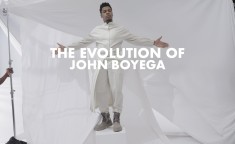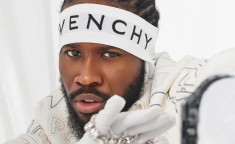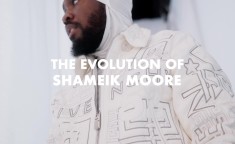In This Issue
Throughout the month of June, EBONY is celebrating the strength, beauty and complexity of Black men. In this feature article from the EBONY archives, three essayists share what it is to face their emotions, driven by their life experiences, choices and outlooks.
To Be Free
By Darnell Moore
My dad was 15 years old when I was born. He was a Black boy bringing up another Black boy during a time when crack, AIDS and institutional racism were destroying the lives of people who looked like us in our Camden, N.J. ’hood as well as across the nation.
“Sweet Daddy,” as he was called, lived a life shaped by the impulse to survive. He didn’t have time to redefine manhood or the freedom to dream of a life unchained from rigid social norms that dictated what Black masculinity should look like.
Growing up with my dad was a lesson in how restrictive Black masculinity is for many males. How could I cry or express fear when the Black boy charged with raising me was taught to contain his tears and drown his apprehensions? How could I grow to love and respect Black girls and women when the Black boy who loved my mama used his fists, rather than words, to communicate his frustrations to her?
So many Black men live as if our lives are tombs. Our emotions, aspirations, longings, anxieties, complexities, mistakes, failures and imaginations are buried along with our truest selves. But the costs of living unauthentic lives are hefty. We are denied the ability to heal, to lead healthy relationships, to make amends for our errors, to be intimate, to be fully human, to be alive.
My Black daddy wasn’t simply at a disadvantage because he was so young when I was born; society failed him by telling him he needed to be something other than vulnerable, free-spirited and honest. As a result, I believed the same for most of my life.
Alas, there’s nothing unmasculine about learning to embrace our complexities, to share our feelings and love ourselves and others as we see fit. Black men and boys need the freedom to truly live, and I do my best to live in that truth each day.
Darnell L. Moore is a senior editor at Mic and co-managing editor at The Feminist Wire. Follow him on Twitter: @Moore_Darnell.
Mama’s Boy
By Jonathan Wall
I’ve never been good at dealing with emotional pain. I maintain low expectations of people to protect myself from being hurt and rarely let anyone get close enough to me to disappoint me in the first place. Hard conversations and arguments with loved ones? I’ll avoid them like the plague. When all else fails, I run to my mother, my personal and invincible superhero—that is, until one recent incident …
On an otherwise uneventful Saturday night, I was pulled over by the cops during a visit to my hometown of Raleigh, N.C. Within seconds of my conversation with the two White male officers, it became apparent that they’d pulled me over to find a reason to have pulled me over.
The next morning, deeply saddened by what had happened the night before, I started to explain the details of my trauma to my mother. Tears filled her eyes and and she began to pace the room in circles, crying. “Why do we get treated like this? she asked. “When is this world going to change? What are we supposed to do?” I had no answers.
I was (selfishly) disappointed that Mom was so emotional when I’d expected her to help me process my pain, not to be overcome by her own.
As I sat silently, unable to console my mother, I finally realized how I’d put her in the same “strong Black woman” box where so many Black women are placed. How many other Black men have done the same thing? How many of us look to our mothers, sisters, lovers or even our daughters to shoulder the weight of our emotions without fully considering their own?
I have since apologized to my mother. I have also faced the reality that I might not ever become “good” at dealing with emotional pain independently and will likely continue to rely on my mother’s support as I confront it. From this day forward, however, I will do so in a way that leaves room for her to express her own emotional vulnerably and that acknowledges how the fullness and complexity of her humanity make her the superhero that she is.
Jonathan Wall is a lawyer in NYC. Follow him on Twitter: @imfromraleigh.
Blueprint for Better Manhood
By Kiese Laymon
A number of us who organized pushback to the My Brother’s Keeper initiative back in 2014 gathered recently in upstate New York to evaluate all that has happened since it was announced. We were in the midst of planning a curriculum for a series of summer workshops for Black boys, and central to our discussion was the work we need to do to get programming that addresses gender and sexism into schools and other spaces for young people nationwide.
During this session, one member of our group suggested we talk about our personal relationships to what journalist/activist Esther Armah has branded as “toxic masculinity.” He said dealing with this epidemic meant we needed to consider the ways we’d been taught that being a man requires us to be cold, calculating and harmful to women and ourselves. For me, that meant reckoning with my experiences as both a survivor of sexual violence and a former perpetrator of emotional violence. I found myself speaking words I’d never spoken and hearing words I’d never heard before in the presence of a multigenerational group of Black men of varying sexual orientations and identities, and opening up in ways that, perhaps, I had only paid lip service to in the past.
This experience was an important reminder that Black men who are organizing and strategizing around issues of race and gender must be mindful to confront their own issues with manhood in order to be effective. We have to come into this activist work with a commitment to honesty: honesty about what we’ve experienced, and honesty about how we have been perpetrators of the same flawed masculinity we wish to challenge. Without that commitment, all our efforts at modeling healthier ideas of manhood for Black boys will be hollow. A better, safer world is possible, but if we cannot be the change we wish to see, then it simply cannot exist.
Kiese Laymon is the author of the award-winning novel Long Division. Follow him on Twitter: @KieseLaymon.
This story appeared in the Oct.-Nov. 2016 issue of EBONY Magazine.




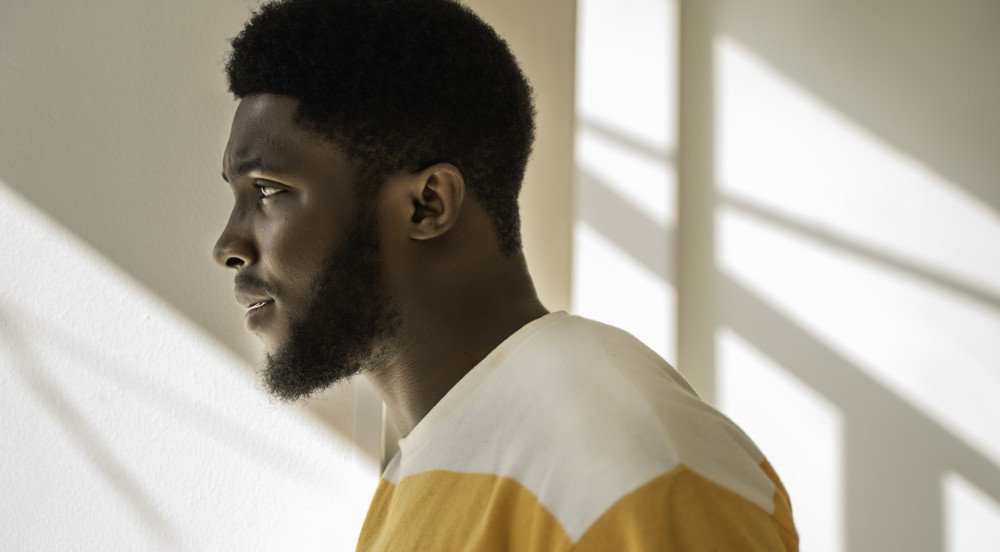

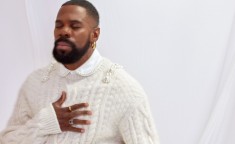
![1920×1080 InsidetheIssuewitMarielleJune[1]](https://www.ebony.com/wp-content/uploads/2023/06/07/1920x1080-InsidetheIssuewitMarielleJune1-235x144.jpg?t=1693766252)
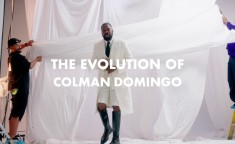
![John Boyega Mens cover[64]](https://www.ebony.com/wp-content/uploads/2023/06/14/John-Boyega-Mens-cover64-235x144.jpg?t=1686753511)

